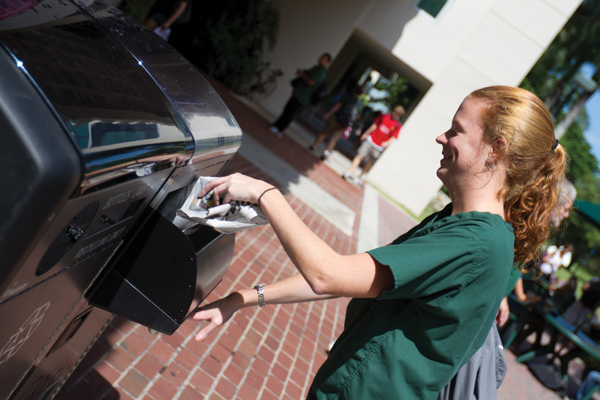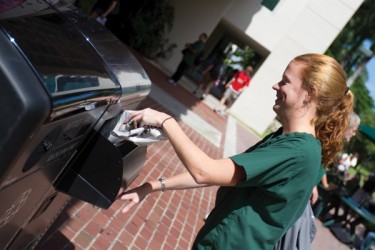

Move over garbage cans and recycle bins, the BigBelly is in town.
Located in front of Starbucks by Richter Library, the BigBelly Solar Compactor is a new trash can that uses solar energy to power an internal compacter.
Once the trash reaches a certain level, it is compacted to create more space in the trash can. It also functions as a recycling bin.
“It’s really cool. It’s very obvious and very attention grabbing,” said Ian McKeown, UM’s sustainability coordinator. “This is a pilot one by the library to see if it meets the needs of the campus.”
The purpose of the BigBelly is to help reduce pollution by decreasing the frequency of trash pickup. Trash will only be picked up three times a week, as opposed to every day. As a result, less money will be spent on gas and labor.
“It reduces the volume of your trash. So in theory, you don’t have to pick it up as much,” McKeown said. “Also, it’s got a wireless system, so it lets the people know they can go [pick up the trash].”
The BigBelly trash can has been implemented on campuses nationwide, including at Harvard University, Arizona State University and the University of Boston.
The trash can is the latest initiative from Green U, an organization that encompasses all sustainability efforts instituted at the university. McKeown hopes to eventually place the bins across campus.
“I think this unit is awesome. It is cool, unique and it has been proven to work at other institutions throughout the United States,” he said. “It has made a difference in other places. We brought it to UM to see if it will make a difference here.”





